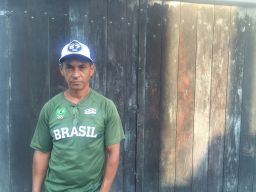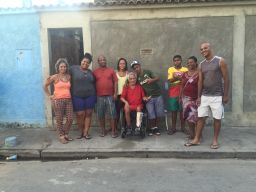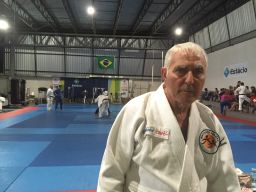Story highlights
Rafaela Silva won a gold medal at the Rio Games
She was born in a favela
When most people think of City of God, a humble favela located in western Rio de Janeiro, they picture the violent images and gory shootouts immortalized by the world-renowned film of the same name.
Now, the neighborhood is back in the spotlight, but not because of its silver screen persona. Instead, it’s being referenced around the globe as the birthplace of Rafaela Silva, Brazil’s first gold medal champ of the 2016 Summer Olympic Games.
“I never thought I’d be able to compete like this and have an Olympic medal at home,” Silva, 24, said during a news conference Tuesday.
Inside City of God, many residents were elated. A local churro vendor, known as “Cacharrao,” remembers when Silva used to practice judo with his own daughter as a child.
“She was a fighter, a real warrior just like you saw,” he said, as he coated the fried dough treats with cinnamon and sugar.
Outside the mustard-colored home where she lived until the age of eight, her father Luiz Carlos Silva and a handful of other relatives chatted out on the street with neighbors and passersby. As people stopped by his doorway, Silva recalled his daughter’s moment on the podium and pointed at the “57” on his white cap.
“This is Rafaela’s weight class,” he said proudly as he signaled the top of his head. “Even if it would have been a bronze medal I would be celebrating, but it was gold!”

A golden opportunity Rafaela Silva almost gave up on four years ago, after being disqualified for an illegal hold in a preliminary round during the London Games. Not only was she kicked out of the tournament; she was taunted online with racist remarks, including being called “macaca,” or monkey, by some users.

“She did not practice judo for three months after that and almost gave it all up,” her father recalled. “But, thank God she managed to bounce back and get back on the mat.”
Following her London upset, Silva won several medals including the gold in the 2013 Judo World Championships.
At the Instituto Reacao, the nearby NGO where she began her training under the guidance of former national team coach Geraldo Bernardes, a group of amateur judoka children beamed at the mention of Rafaela Silva’s name.

“I like her because she has a tough face,” little Vitoria Matos said, trying to replicate the look. “I want to be like Rafaela someday.”
A sentiment Silva hopes will resonate with people beyond her community.
“I think it can serve as an example to children from poor communities, where you feel discriminated just for being black,” Silva said. “This now shows that a child from the favela with no hope, who started judo for fun at the age of five, can end up somewhere.”

